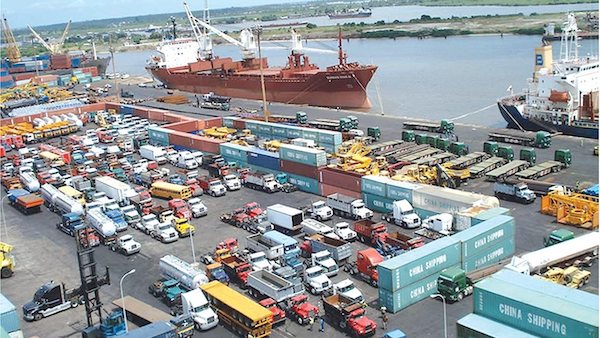Business
Maritime workers threaten to shutdown ports over outstanding stevedoring bills

The Maritime Union of Nigeria has given a two-week ultimatum to the Federal Government to compel the International Oil Companies to pay all outstanding bills on stevedoring owed dockworkers or face a shutdown of ports in the country.
According to the union, in a statement signed by its President, Prince Adewale Adeyanju and Secretary General, Felix Akingboye on Thursday, the outstanding bills was over a year
The union further alleged that the dockworkers had worked for over a year without being paid any money, adding that some of them could no longer fulfil their financial obligations, as the IOCs had refused to process their invoices.
“We want to use this medium to intimate you and the Federal Government of the non-payment of the stevedoring wages to dockworkers by the International Oil Companies operating in Nigeria. We are aware that on June 1, 2018, the Nigerian Ports Authority appointed stevedoring contractors to provide stevedoring services at various offshore jetties and onshore locations to the International Oil Companies and other operators.
“It will be necessary to inform you that NPA had held several meetings with these operators to grant access to the government-appointed stevedoring contractors, process their invoices and effect payment, unfortunately, the operators have refused to comply with the NPA’s directive after one year that the stevedoring contractors were appointed.
“We commend the Managing Director of the Nigerian Ports Authority for the effort NPA made to compel the IOCs to engage the services of appointed stevedoring and registered dockworkers in their stevedoring operations”, the statement said.
According to the association, during a stakeholders’ meeting organised by the NPA in February last year to sensitise the IOCs, jetty owners and terminal owners, the NPA management made it clear that in line with section 27 of the Nigerian Maritime Administration and Safety Agency Act, 2007, only government-appointed stevedores and registered dockworkers were empowered by law to solely handle discharge and loading operations at the port, jetties and oil platforms.
“The position of the operators on NPA’s directive is worrisome and very surprising because the same operators had processed and paid the former stevedoring contractors since 2010 through a foremost terminal operator. So, why are they refusing to cooperate with the newly-appointed stevedoring contractors since the modus operandi remains the same?”, the union said.
Lamenting that it had monitored the turn of events in the last one year, the union said that given the defiant attitude of the IOCs, some dockworkers had died untimely, while some others could no longer meet their obligations like payment of house rent, children school fees and hospital bills, to mention but a few.
The statement further said: “We can no longer continue to watch our members die prematurely because of the defiant attitude of the IOCs.
“Consequently, we are constrained to give the Federal Ministry of Transportation that superintends the appointment of stevedores two- weeks (14 days) to prevail on the management of the International Oil Companies to pay all outstanding bills to our members, failure of which we will be compelled to withdraw our services and shut down operations in all the nation’s Sea Ports.”
Join the conversation
Support Ripples Nigeria, hold up solutions journalism
Balanced, fearless journalism driven by data comes at huge financial costs.
As a media platform, we hold leadership accountable and will not trade the right to press freedom and free speech for a piece of cake.
If you like what we do, and are ready to uphold solutions journalism, kindly donate to the Ripples Nigeria cause.
Your support would help to ensure that citizens and institutions continue to have free access to credible and reliable information for societal development.






















